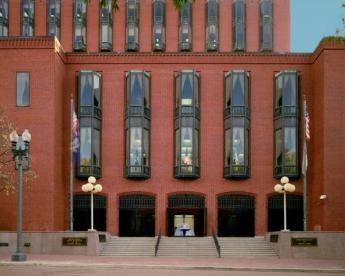The US Court of Appeals for the Federal Circuit affirmed a US International Trade Commission (ITC) decision upholding a civil penalty for violating a consent order based on a patent that was later found to be invalid. The Court agreed with the ITC that a belief that a patent is invalid does not support a finding of good faith for violating a consent order, even if that belief is later vindicated by invalidation of the patent. DBN Holding, Inc. v. ITC, Case No. 20-2342 (Fed. Cir. March 1, 2022) (Moore, C.J.; Newman, Reyna, JJ.)
In 2012, BriarTek IP instigated a Section 337 investigation at the ITC against DBN based on allegations of infringement of a single patent related to two-way satellite notification devices. That investigation was terminated in early 2013 after DBN agreed by a consent order to not import any infringing devices. Only a month later, however, BriarTek filed a complaint seeking an enforcement action against DBN and asserting that DBN had continued selling its infringing devices in violation of the consent order. A month after that, DBN filed a declaratory judgment action in the Eastern District of Virginia alleging that BriarTek’s asserted patent was invalid. In June 2014, the ITC found that DBN had violated the consent order and imposed a civil penalty of $6.2 million against DBN. Later, in November 2014, the district court granted summary judgment of invalidity of BriarTek’s patent. DBN appealed the ITC’s civil penalty finding and BriarTek appealed the district court’s invalidity finding. On appeal, the Federal Circuit affirmed the invalidity finding but also affirmed the ITC’s imposition of a civil penalty for violating the consent order even though the patent was later found invalid.
Undeterred, DBN filed a petition in early 2016 asking the ITC to rescind or modify the civil penalty in view of the finding that the asserted patent was invalid. The ITC denied DBN’s petition based on its view that the Federal Circuit’s previous decision constituted res judicata that barred the ITC from reconsidering the civil penalty. DBN again appealed, and the Federal Circuit reversed and remanded to the ITC to decide, in the first instance, whether the civil penalty should be rescinded or modified. On remand, in August 2020, the ITC again denied DBN’s petition. The ITC first rejected DBN’s argument that civil penalties had been modified in similar circumstances, finding that the only identified case where a civil penalty (as opposed to a remedial order) was rescinded was distinguishable because the civil penalty had been negated by a retroactive license while the appeal was still pending. The ITC next analyzed the EPROM factors and concluded that they did not favor rescission or modification. With regard to the first EPROM factor (whether DBN acted in good or bad faith), the ITC held that the invalidity finding had no effect because a belief in invalidity is not one of the factors considered for good faith.
DBN appealed again to the Federal Circuit. The Court agreed with the ITC that none of the prior cases cited by DBN supported rescinding the civil penalty. The Federal Circuit also found no error in the ITC’s reassessment of the EPROM factors and noted that DBN’s reliance on its good faith belief in invalidity was based on a prior Federal Circuit decision (holding that an induced infringer could rely on their good faith belief in invalidity) that the Supreme Court had since vacated, leaving DBN with no legal support for its position. The Federal Circuit thus affirmed the ITC’s decision.




 i
i


